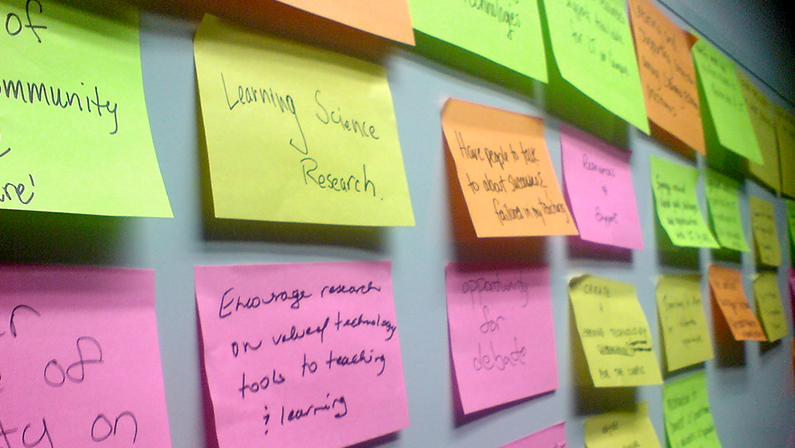Embedding employability in the curriculum workshop
TERNZ Conference, 1 December 2016
The University of Otago, Dunedin
If you read our post on the Future Ready Graduates workshop, you would have seen that participants know how to embed employability in the curriculum, however it would require changes to traditional teaching practices that most universities are not prepared for. The follow on workshop, Embedding Employability in the Curriculum delivered by Professor Susan Geertshuis (University of Auckland), Dr Rob Wass (University of Otago) and Narissa Lewis (University of Auckland) encouraged participants to consider their own organisations and the factors that support or hinder change.
The workshop was attended by approximately 15 academic and academic development staff from Ako Aotearoa, the University of Auckland, Auckland University of Technology and Massey University. Participants explored and identified methods for developing employability skills and factors that support or hinder implementation in the curriculum. The workshop gave participants an opportunity to:
- Identify and discuss learning and teaching methods for developing employability capabilities;
- Explore the pressures on academics with regard to teaching soft skills and employability capabilities.
In groups of 3 to 5, participants identified 4 to 6 learning and teaching methods for developing capabilities through the curriculum. Participants considered methods that:
- raise students’ awareness of their level of development and the capabilities that are necessary for a successful career (and life);
- scaffold or support capability development across courses and years;
- prepare students for a future characterised by rapid change and where global and sustainability issues cannot be ignored; and
- prepare students for transition out of university and into employment.
Active learning pedagogies were highly emphasised such as problem, project and team based learning. It was noted though that ‘team-based learning’ can sometimes be considered a catch-all and that not all students thrive in groups. Group dynamics can also be difficult to manage. Nevertheless, the ability to work in teams was considered an integral employability skill. The use of authentic case studies, simulations and role playing was also considered important to give students a taste of what they might experience in industry.
Once methods were identified, participants were then encouraged to reflect on their own organisations to identify forces and arguments that support change and forces and arguments that hinder change.
Forces and arguments that supported change include demands for graduates who have soft skills and capabilities. Industry demands suggest that disciplinary knowledge is simply not enough, therefore industry engagement was considered integral in curriculum development.
Employability and graduate outcomes were on the agenda for most tertiary institutions that participants came from. Changes at the institutional and department level supported employability skill development, however, approaches were often ad-hoc. Integrated and cohesive approaches between courses and levels were emphasised – this was also a common theme in the Future Ready Graduates workshop.
Forces and arguments that hindered change were based predominantly on behavioural changes. The group explored questions that relate to changes in teaching practice… How do we change traditional teaching practices to encourage the use of more active learning pedagogies? How do we encourage engagement with industry? How do we teach ‘experts’ to move away from traditional teaching practices? Although employability was on the agenda in most institutions, resistance to change was considered a significant factor.
With the many hats that academic staff wear, resistance to change was hardly surprising. How does one find the time to create and implement learning and teaching methods that develop employability capabilities? Academic staff experience multiple pressures – pressure to research, pressure to teach. In that sense, it was suggested that incremental change is more effective. A key takeaway, implement changes that are small but impactful!
The workshop uncovered learning and teaching methods that develop employability skills. Like the Future Ready Graduates workshop, it also uncovered the difficult road ahead to change traditional teaching practices. The workshop focused on unpacking forces that support and hinder change to give participants an opportunity to start thinking about ways to perpetuate forces that support change and minimise forces that hinder change.
Interested in running this workshop in your own organisation? Download our customisable workshop materials.

Recent Comments